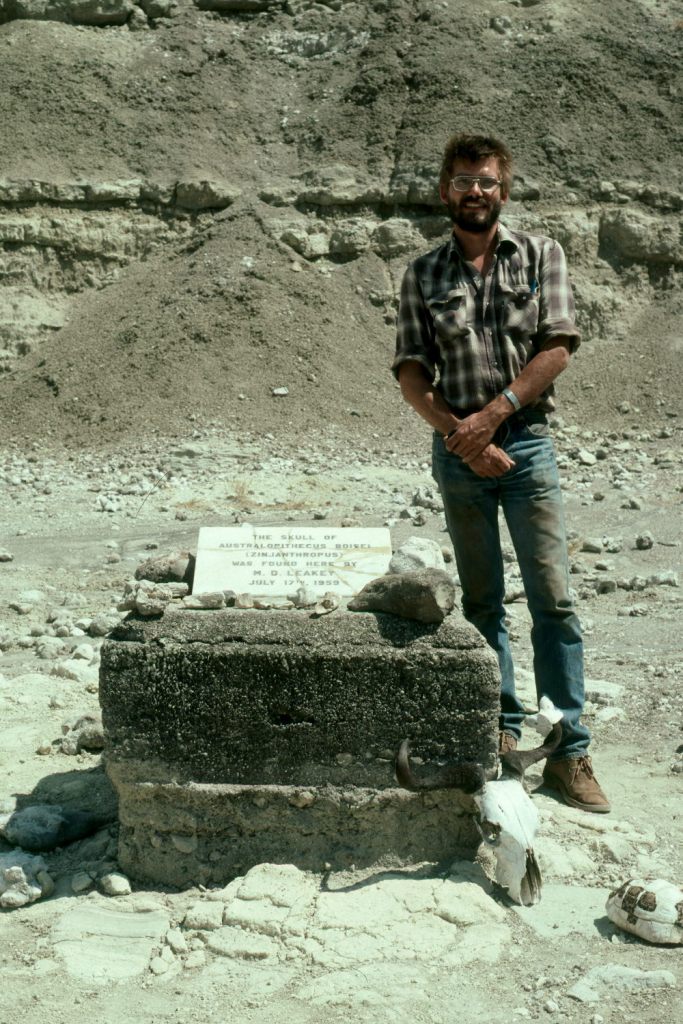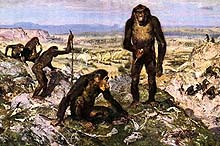A couple of commenters on previous posts have raised some interesting and thoughtful issues. I’d like to get to several of them eventually, but I want to start with Dave’s comment several posts ago regarding how infuriating it is to try to deal with creationists. Dave is clearly a good accomodationist – rejecting extreme fundamentalist interpretations of the bible (six day literal creation) while still buying into the concept that there is something larger than natural forces in the world. I understand the logic (and cultural need) behind the sentiment and I traveled that accomodationist path myself for many years. But there is something about the way god supposedly operates in the real world (as described by followers and believers) that never made sense to me and ultimately forced me to reject an omniscient god who has power and dominion over the world. Dave’s last comment gets to the issue:
The point is that everything has a designer, except for one thing. Something that designed it all, something that caused it all. God. Machines don’t create themselves, even living beings don’t recreate themselves.
Notice that last sentence: “Machines don’t create themselves, even living beings don’t recreate themselves” (emphasis mine). If you actually stop to think about it, this idea has profound implications not just for how we understand the world around us, but also (and more significantly) for our understanding of a potential deity. The assumption here is that Dave actually means that the very act of recreation (we’ll get to what that may mean in a moment)is, in fact, driven by an omniscient god and not by the individual organisms involved in the process. One can only further assume that every act of that recreative event (from the attraction and physical process of mating to the process of embryo formation (yes, we’re only talking about sexual procreation, but the same issues would apply to asexual as well) to the development of an embryo, to the eventual birth of an individual is controlled by god and NOT natural processes. I believe this is what Dave is thinking by that statement and I would suggest that he is not alone. The thought of a supernatural “guiding” influence is a paradigm running through much of religion (usually not explicitly), from arguments against abortion and birth control to the spread of AIDS, to the reason for hurricanes, to the concept of intelligent design. All of these ideas, as espoused by many in the religious community, presuppose the intervention of a supernatural being. In effect, god is responsible for these events and processes.
Of course the implications of this position are profound. Consider just the example of Dave’s view that the process of procreation is guided by god. If that is the case, then when all goes well, we can all clap, laugh and revel in the beauty of a newborn fawn, foal or baby. But what happens when it doesn’t work out?
- Is god responsible for point mutations occurring in base pairs that can cause disease and certainly lead to variation among organisms? Is god responsible for Sickle Cell disease?
- Is god responsible for deletion/insertion mutations responsible such things as Huntington’s disease?
- Is god responsible for transcription errors, or crossing over errors, or recombination errors we frequently see and that may result in horrendous mutations and frequently death of the individual?
If we are to believe that god is responsible at all stages of this process, then what does that say about god? If he is responsible for the failed implantation of a fertilized egg in the uterine wall and subsequent loss of the “life” (we know this as a miscarriage) then is god an….abortionist? If god is completely responsible, then he clearly deserves a lot of blame in the world. If he is not responsible and those processes are beyond his control, then god is not omniscient. If humans, through medical research and good old-fashioned science can “fix” some of these natural processes, mitigate their effects or prevent them altogether (which we do regularly) then are we actually interfering in god’s plan and process? The very fact that we can interfere makes us substantially better than the deity.
Forget natural processes, what about events that many people consider “miraculous” every day (or at least every Sunday). Catholics believe that the bread and wine of the Eucharist becomes the body and blood of Christ. It essentially becomes divine at that point (this is not supposed to be mere symbolism – faithful Catholics are supposed to buy into actually drinking Christ’s blood and eating his body – it was the first belief I dropped on my journey to leave the Catholic Church). If the communion is so divine, then explain how people can be infected with Hepatitis A. What, god can’t even keep the challis and host clean during a ceremony in his honor?
The fact is, that when we attribute natural processes to god’s whim, it becomes abundantly clear that god operates capriciously. There is no pattern to god causing X or fixing Y or preventing Z. In effect, isn’t god just acting…randomly? And isn’t randomness just like…natural processes? Is there a difference between god and nature, and if so, where do you find it?





Leave a comment